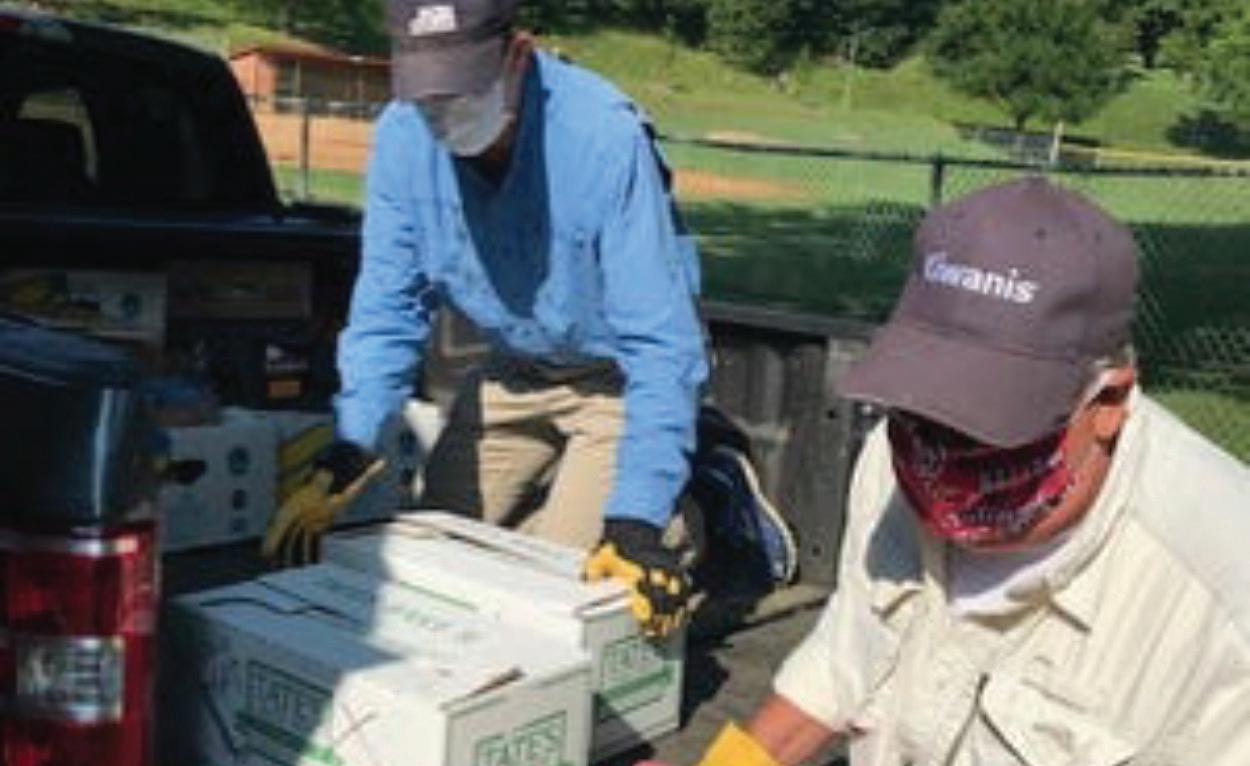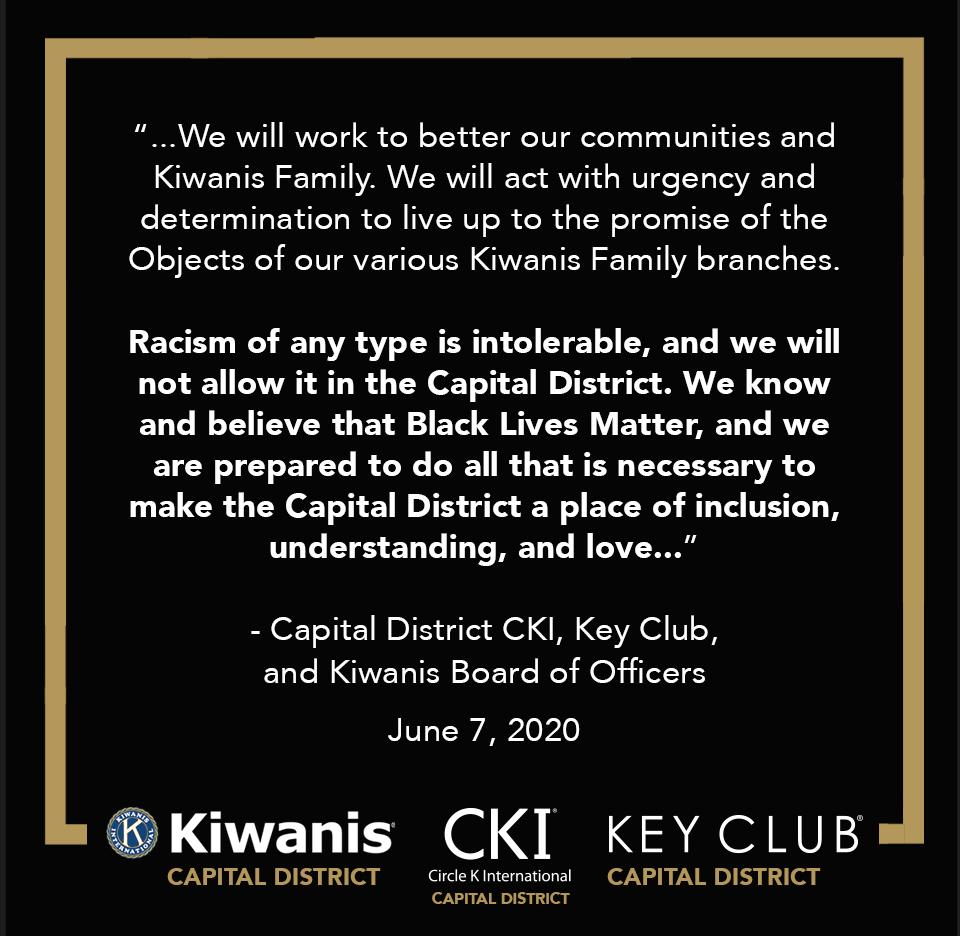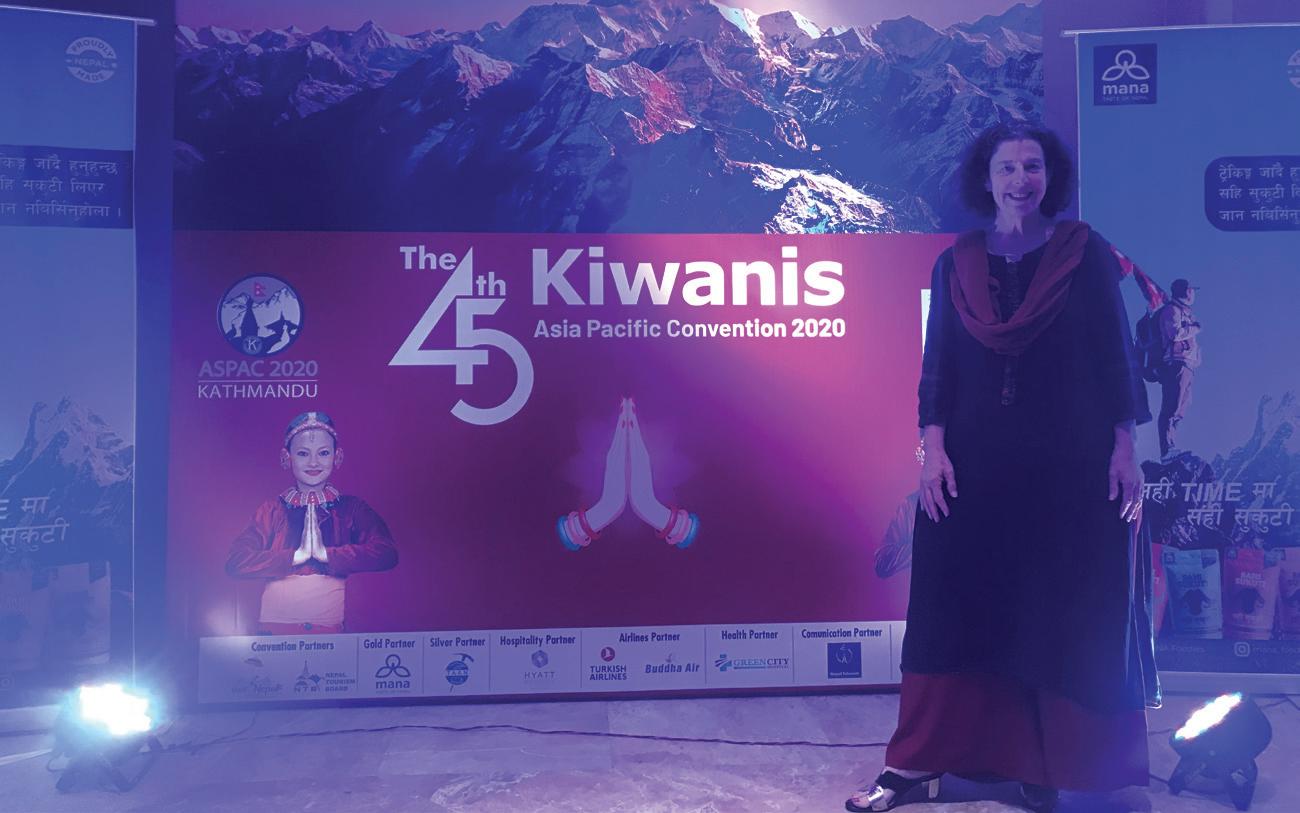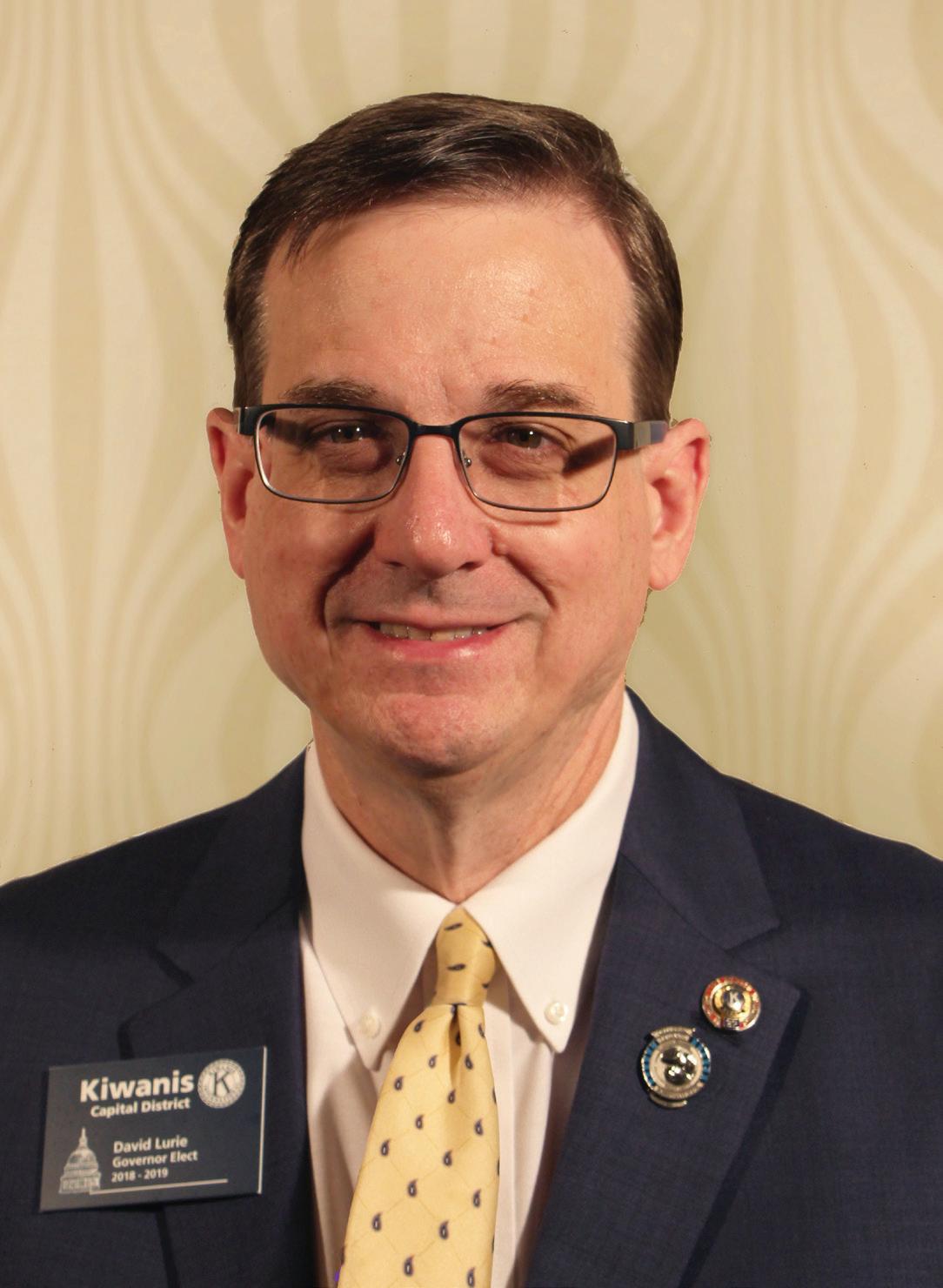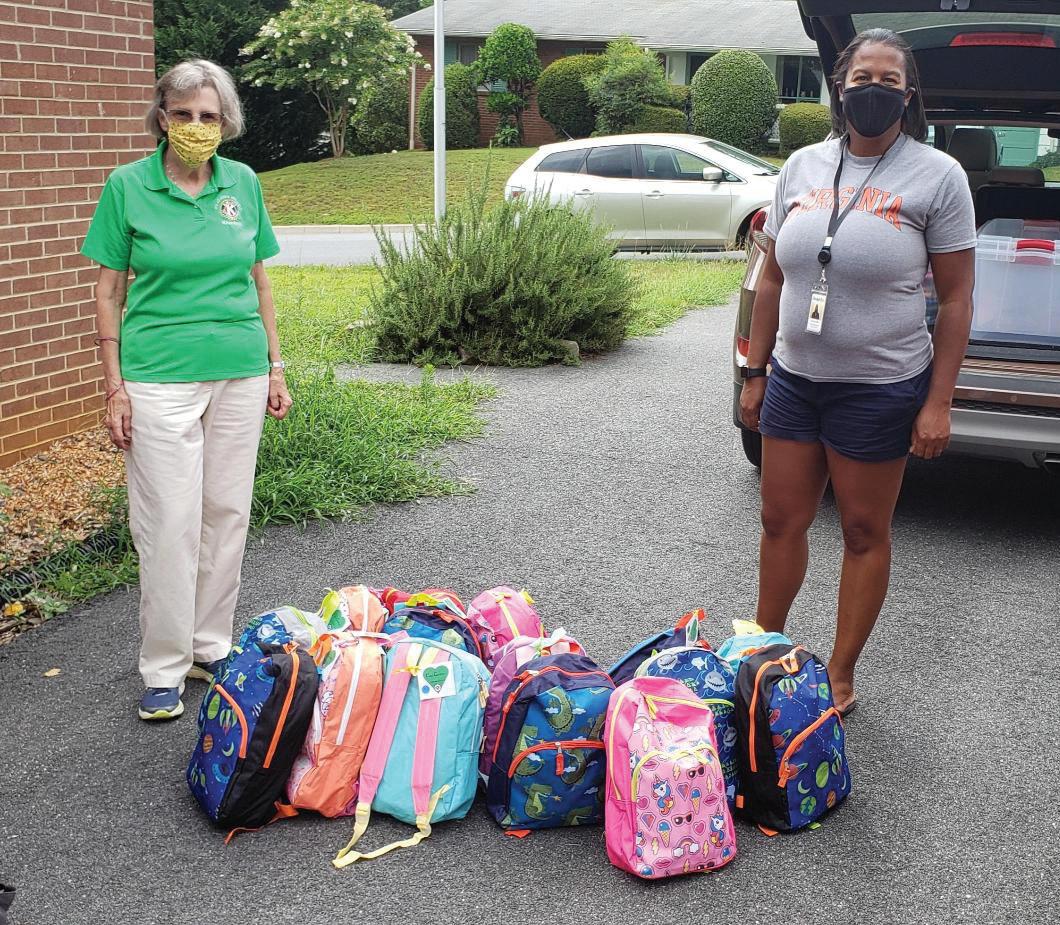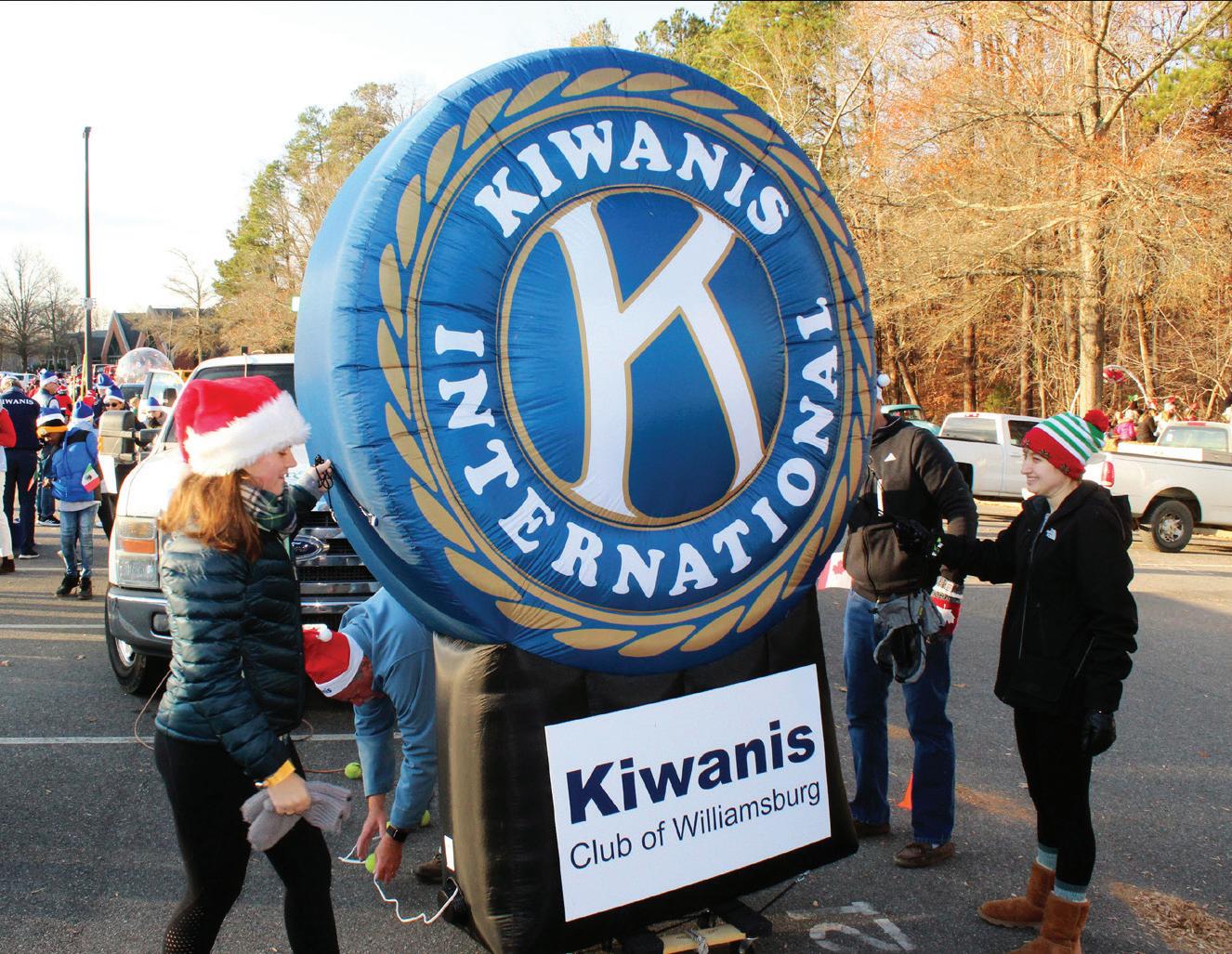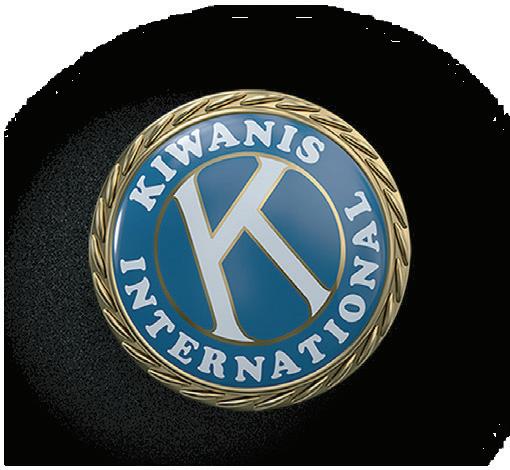
16 minute read
EYE ON KI
News from Kiwanis International
UNITY AND THE LESSONS OF HISTORY STAN SODERSTROM | JUL 20, 2020 Stan D. Soderstrom is the executive director of Kiwanis International and the Kiwanis Children’s Fund. His background includes global and community-based work in the public and private sectors.
Google the term “greatest U.S. presidents.” You’ll find online articles that rank America’s 47 presidents from best to worst. Now click on several links. In almost every case, you’ll see the same two names at the top: George Washington, the nation’s first president, who usually comes in at No. 2, and the 16th president, Abraham Lincoln, who comes in first. What did they have in common? Both led at a time when the future was extremely uncertain. Washington headed a young nation that had no guarantee of survival. Lincoln lived with uncertainty about restoring the American union. Both had passionate critics, and both had times of doubt and even despair. Both leaders were also lifelong learners despite lacking formal education. And each led largely through relationships with others. In each case, I think those qualities persuaded both men toward unity as a solution to the tumult of their times. Washington helped a young country whose motto was e pluribus unum (“out of many, one”) to realize its aspirations — because of, rather than despite, a population that had come from many parts of the world to form many communities in 13 very different colonies. Lincoln, known for many of his oratorical performances and historic speeches, delivered one to a country on the brink of civil war — two years before he was elected its president. “A house divided against itself cannot stand,” he said in an 1858 address, rephrasing a verse from the Bible to express his own vision for the nation. In today’s world, it’s easy to find leaders whose style is to divide. And people easily become polarized or splintered. Too often, our first inclination is to think in terms of winning and losing. And we all hate to lose. But we have big challenges to overcome — together. Whether it’s the global pandemic, the resulting economic turbulence, racial injustice or whatever crisis may be just over the horizon, solutions come only when people pull together. That’s where leadership comes in. When you analyze the histories of Washington and Lincoln, you see constant effort toward uniting people. They had their critics, and they surely weren’t perfect. But the power of unity overcame the appeal of division — not by magic or mere hope, but because of the framework they created. And both are viewed among history’s winners because of that. In turbulent times, it can be easy to get caught up in the back-and-forth of public debate. After all, leaders are individuals too — and we all have our own perspectives and experiences. But our responsibility as leaders is to bring different perspectives and viewpoints together for a common purpose. And since the essence of leadership is to create other leaders, we should also look for and mentor other people who have that commitment and talent. After all, it was good enough for Washington and Lincoln — so I’m confident it’s the best long-term approach for us too.
SPREAD THE WORD Kiwanis clubs around the world are beginning to gather again. And they’re sharing their stories on social media platforms and in traditional media. When your club meets again, shares information about a postponed or rescheduled event or participates in a service project, be sure to tell the public. There may be potential members waiting to join. Not sure where to start? Download the Tips and Tools booklet.
RILEY, MANCUSO, WEST ELECTED NEXT LEADERS OF KIWANIS INTERNATIONAL Art Riley was elected president of Kiwanis International, Peter Mancuso was elected president-elect and Bert West was elected vice president during Kiwanis International Council, a special meeting of the board of trustees, past presidents, current district governors, the European Federation president and the Kiwanis Asia-Pacific chair. The Kiwanis International Board convened the Council on July 25, 2020, due to the cancellation of the 105th Kiwanis International Convention. “The events of 2020 dictate that we look ahead with determination and optimism,” said Art Riley, 2020-21 president. “The air of uncertainty caused by the COVID-19 virus demands we examine our values more than ever. In the coming year I will work to transform Kiwanis through membership growth, more focused youth leadership education and greater attention to diversity and inclusion.”

All new officers for 2020-21 are:
• Art Riley, president • Peter Mancuso, president-elect • Bert West, vice president • Kip Crain, U.S. & Pacific Canada trustee • Chuck Fletcher, U.S. & Pacific Canada trustee • Michael Mulhaul, U.S. & Pacific Canada trustee • Michel Fongue, at-large trustee Trustees from the Asia-Pacific District were elected during the Asia-Pacific District Convention held in Nepal in March. They are Buheita Fujiawara of Tokyo, Japan, and Wilfredo G. Aguilar of Koronadal City, South Cotabato, Philippines. (Information on all candidates is here.) Additionally, council voted to memorialize past international presidents who died in the past year, including: • Ray Lansford, 1984-85 • Frank DiNoto, 1986-87 • Anton “Tony” Kaiser, 1987-88 • John Button, 2014-15 • Florencio “Poly” Lat, 2018-19
Executive Director Stan Soderstrom addressed the challenges presented by the pandemic. “Our inability to predict where we will be three months from now has never been more difficult,” Soderstrom said. “We are not necessarily in crisis, nor are we in the midst of a calamity or impending disaster. We need to properly assess the environment in which we exist.” During the evening portion of council, attendees and viewers were able to “Celebrate Great” during two awards ceremonies. Council presented eight districts with Distinguished Awards for the 2018-19 administrative year, noting that the districts achieved a net gain in membership. There were 433 new clubs formed to help children and communities that year. Additionally, council presented awards to districts that won the Signature Project Contest and Recognition. Winners are:
TIER I WINNERS
GOLD — Kiwanis Club of Ormond Beach, Florida District, Kiwanis Reads! Summer Reading Challenge SILVER — Kiwanis Club of Oak Lawn Area, Illinois-Eastern Iowa District, Feed 6 Mega Event BRONZE — Kiwanis Club of the Adelaide Hills, Australia District, Kiwanis Book Shop
Eye on KI (continued)
TIER II WINNERS
GOLD — Kiwanis Club of Prescott, Southwest District, Live Annual Auction SILVER — Kiwanis Club of Ames-Town and Country, Nebraska-Iowa District, Teen Maze BRONZE — Kiwanis Club of Mansfield, Ohio District, Friendly House
Soderstrom challenged members to be innovative when finding ways to meet, fundraise and support children in their communities. “We may not be able to predict the future, but we can begin to predict the skills we will need to survive and we can recognize that change is on the horizon,” he said. “It has been a difficult second half of the Kiwanis year,” said 2019-20 Kiwanis International president Daniel Vigneron. “We have lost members to the pandemic and it has not
been easy for our clubs to meet. Some of our initiatives have been put on hold, including training for expansion in Africa. I know that coming through this we will be stronger in the future. The transition of leadership to Art Riley and Peter Mancuso will put Kiwanis in a position to move our organization forward.”

MNT DEATHS CONTINUE TO FALL JENNIFER MORLAN | JUN 18, 2020 The number of babies needlessly dying from neonatal tetanus continues to fall, thanks, in part, to the commitment of Kiwanis International. The world has seen an 85% reduction in newborn deaths from tetanus during the past 18 years, including a 57% drop since Kiwanis joined UNICEF in the fight against maternal and neonatal tetanus in 2010, according to a new report by the World Health Organization. A group of scientists, statisticians and experts recently analyzed data that showed an estimated 25,000 babies died of tetanus in 2018, almost 6,000 fewer than reported in 2017. The report also showed that the number of newborns dying each day from tetanus decreased from 85 in 2017 to 68 in 2018, the latest year for which data was available. In 2011, 159 babies died every day from tetanus. “It’s encouraging to see that the work we started with UNICEF a decade ago keeps moving us toward the day when no baby dies of tetanus,” says Stan Soderstrom, executive director of Kiwanis International and the Kiwanis Children’s Fund. “These are more than just numbers — they are lives saved. The Kiwanis family should be proud of its international impact.” Kiwanis’ partnership with UNICEF supports health care workers and volunteers who face conflict and other health priorities, such as polio and Ebola, in some of the world’s most forbidding areas. They have vaccinated more than 161 million women of childbearing age, freeing them from the fear that their babies could die from this excruciating disease. If a mother has not been vaccinated, neonatal infections can occur when childbirth takes place without proper hygienic care — for example, on a dirt floor or without sterilized tools. Newborns who contract tetanus suffer repeated and painful convulsions and extreme sensitivity to light and touch. Without hospitalization, there is little hope of survival. But in addition to providing vaccinations, the effort to eliminate maternal and neonatal tetanus (MNT) has led to more births being overseen by doctors, nurses or midwives — leading to better outcomes for moms and babies. And Kiwanis’ involvement has motivated other large membership-based organizations to join the fight. Despite the progress, the global MNT elimination initiative faces numerous challenges. Today, MNT remains a threat in 12 countries — nations where women are poor, have little access to health care or may be in danger from wars or internal conflict. And while immunization plans are in place in most of these countries, the COVID-19 pandemic has disrupted vaccination efforts.
But Kiwanis’ life-changing work will continue, says Soderstrom. Kiwanis International continues to raise money to pay for vaccinations, transportation, training, monitoring and supervision — so that mothers give birth in clean, safe environments. Support moms and babies by making a gift today.
CLUBS HELP KIDS WITH E-LEARNING When the COVID-19 pandemic hit, schooling was disrupted for more than 1.5 billion children worldwide. For some students, the transition has been smooth. Work done in classrooms is being done on the family computer or students’ laptops. But nearly 830 million young learners globally lack access to a computer, according to the United Nations Scientific and Cultural Organization (UNESCO). Numerous Kiwanis clubs are tackling the digital divide that has been exposed by the coronavirus. Using grants from the Kiwanis Children’s Fund, clubs are working with school districts to provide technology to students. While delivering food hampers in Scarborough, Tobago, Shelly-Ann McPherson-Price said her club learned about the obstacles facing families in their community. She heard about a family with six children who were all trying to do their schoolwork on their father’s smartphone. The Scarborough Kiwanis club is using its grant from the COVID-19 Response Program to provide food, laptops and internet service to 30 children in six families. You can help: Make a gift to the Kiwanis Children’s Fund to help Kiwanians meet the urgent needs of children around the world — especially during this time of crisis. “At least we can bring relief to some large families that don’t have a computer but have many children,” said McPherson-Price, adding that the island nation has been hit hard by the loss of tourism. The Kiwanis Club of Kanata-Stittsville is also using a grant from the Children’s Fund to fill technology gaps in Eastern Ontario, said club President Glynn Kneebone. Working with the Kiwanis Club of Bytown, the Kiwanians are working with public and parochial school boards to find students who need computers. While school districts were loaning computers to families, the Kiwanians are buying Chromebooks that students can keep. Before receiving the grant, the clubs had raised enough money to purchase 60 computers; the grant will allow the clubs to give away an additional nine to 11 Chromebooks through the program it’s calling Kiwanis Computers for Kids. The clubs don’t meet the families but have learned about their circumstances, Kneebone said. For example, computers have been given to Canadian First Nation families; a family who recently immigrated to Canada from Equatorial Guinea; a family with five siblings, including two with learning delays; and siblings living with their elderly grandmother. Kneebone said the club, which recently celebrated its second anniversary, was considering a computer project before the pandemic forced students to stay home. “We knew this was a problem, but no one knew how large it was until COVID-19 happened,” he said. Response to the program from school officials has been overwhelming. “The pandemic will pass but this initiative by our partners in the Kiwanis clubs will have far-reaching implications for students to help achieve equity and excellence,” the Ottawa Catholic School Board wrote to the KanataStittsville club. As of May 11, The Kiwanis Children’s Fund has awarded 27 grants totaling more than US$61,000. Here are some other examples of ways clubs are using grants to serve their communities: Kiwanis Club of Tokyo: Kiwanians are buying computers and tablets to help children who don’t have access to technology. The club is focusing on helping state-run children’s homes. Kiwanis Club of Tambun, Perak, Malaysia: The Kiwanis club is providing lunch and dinner box meals to an orphanage, as well as homes that assist the disabled and elderly. The club has been able to distribute more than 25,000 box meals. Kiwanis Club of Beavercreek, Ohio: The club will use the grant to help the Feed the Creek food pantry that is supplying more than 4,500 breakfast and lunches to children who are no longer receiving meals at school.
Eye on KI (continued)
Kiwanis Club of Magandang Gensan, South Philippines: About 150 families will receive surgical masks, hand sanitizer and food packs thanks to this Kiwanis club. In addition, the club hopes to teach unemployed mothers how to sew reusable face masks to bring in money for their families. Kiwanis Club of Sincelejo, Colombia: The club is working to provide food, health care, computers and internet service to families in the Vereda Policarpa village. Read how clubs are using grants to feed hungry children during COVID-19 pandemic.

LEGACY OF PLAY CONTEST Kiwanis International teams up with Kiwanis Vision Partner Landscape Structures to give one Kiwanis club US$25,000 of playground equipment. The Legacy of Play Contest, now in its seventh year, celebrates our shared belief that investing in communities through legacy signature projects is important to the success of a Kiwanis club. And with its emphasis on inclusive play, Landscape Structures helps Kiwanis achieve our goal of bringing play to all children. Review the questions for the 2020 contest and submit your entry beginning August 10.
The 2019 winner is the Kiwanis Club of Barron, Wisconsin, USA. The 2018 winner is the Kiwanis Club of Marietta, Ohio, USA. The 2017 winner is the Kiwanis Club of Mankato, Minnesota, USA.
Read the official contest rules. Entry period: August 10 through 11:59:59 p.m. EDT on September 10, 2020 Voting period: September 14 through 11:59:59 p.m. EDT on September 27, 2020 Winner announced: October 7, 2020
LOOKING FOR HELP WITH YOUR ENTRY?
• Hear from Andrew Sloan of the Kiwanis Club of Barron,
Wisconsin, winner of the 2019 Legacy of Play Contest, and LSI inclusive play expert John McConkey, on how to prepare for building a playground. • Learn how Marcia Stewart, 2017-18 president of the
Kiwanis Club of Marietta, Ohio, got her community involved. • Wilbur Neushwander-Fink, member of the Kiwanis
Club of Mankato, Minnesota, winner of the 2017
Legacy of Play Contest, offers other tips and advice for your submission. • Previous judges explain why some submissions raised red flags.
POSSIBLE ADDITIONAL FUNDING
• The Kiwanis Children’s Fund provides grants for
Kiwanis-led service projects that focus on health, education and youth leadership development. Clubs interested in applying for a grant for a playground project should review the program material carefully to learn about the Children’s Fund as a potential funding partner. Check out the Club Grant program for eligibility requirements, important dates and additional resources. • Keurig Dr Pepper & KaBOOM! have teamed up to offer $15,000 grants to be used toward purchasing playground equipment. Grantees will lead their community through a self-guided planning process, using the $15,000 grant towards the total cost of playground equipment and assembling the playground using the KaBOOM! community-build model. Grantees have up to one year to build the
playground and will have the support of a remote KaBOOM! Grants Manager and an onsite Certified Playground Installer. Learn more about the community build model in the Build a Playground Toolkit.
FUNDING APPLICATION DEADLINES
Round 1: February 1 Round 2: June 1 Round 3: September 1
SHOULD MY CLUB MEET OR SERVE RIGHT NOW? We’re all impacted by COVID-19 to some degree. Kiwanis International wants to help keep members and the kids we serve safe. Clubs should follow local health department guidelines for meetings, projects and fundraisers — because the number of people allowed to gather in one place can vary among locations, states and countries.
Up-to-date health information is available from the World Health Organization, your country’s health department, as well as local governmental health agencies.
Kiwanis will continue to serve you and provide ideas about how to continue making an impact. If you haven’t followed us on social media, please do. Follow Kiwanis on Facebook for the most up-to-date news and information.
Continued from page 25
65 graduates receiving diplomas from Principle Melton Wright.” During the preceding discussions, Sandra expressed how grateful she was for the help Kiwanis provided her. She stated that without the scholarship, she would not have been able to attend college. It paid for her first semester and culminated with her graduation from Madison College in 1962.
Sandra spent the next 20 years as a teacher in Richmond and Henrico County, Virginia, with the Department of Defense in Germany and finally in Fairfax County, Virginia. For the past 30 years, Sandra has volunteered helping children that have been victims of abuse and neglect. This is a quote contributed to her on the Childhelp organization website; “I’ve seen real miracles take place for these kids. I don’t know where they would be without Childhelp.” Sandy Crippen, an elementary school teacher in Great Falls, Virginia, remembers seeing the bruises on the little faces in her classroom and knew she had to get involved. Today, Sandy devotes her time to working with the children at the Childhelp Alice C. Tyler Village in Lignum, VA. She was a member of Childhelp’s National Board until last year but continues her service in Northern Virginia and Lignum.
Now, back to that phone call in January. After several conversations with Keith and Sandra, the icebreaker occurred the end of March. Sandra indicated again how important it was to pay back, with interest, what the Kiwanis Club did for her. She wanted to donate $50,000 for scholarships for seniors at Harrisonburg High School so someone else can have the same benefits she enjoyed. The club had just closed the application submission process and had received fifteen requests for assistance. They were having a difficult time narrowing the list down to the normal 3 given each year. With Sandra’s gracious donation, the scholarship committee made the decision to award all fifteen. Although one person withdrew as he no longer needed the funds, fourteen students will receive scholarships ranging from $2,200 to $6,000, thanks to this wonderful gift from Sandra Leake Crippen, so they too can continue their educational journey.
On behalf of the Kiwanis Club of Harrisonburg, thank you Sandra Leake Crippen for remembering where your journey began to help the children of the world. It is also ironic that in 1991, the founders of Childhelp, Sara O’Meara and Yvonne Fedderson, received the Kiwanis World Service Medal for their hard work and dedication to making the world a better place.

